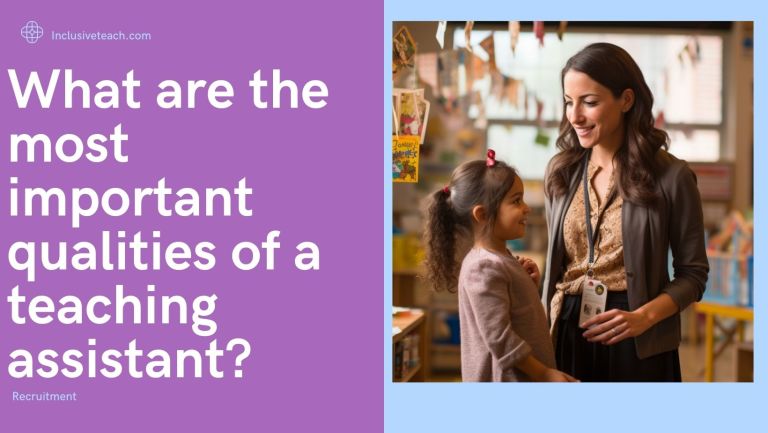How to Advocate for Your Child’s Rights and Needs in the UK School System
Advocating for Your SEN Child
Navigating the UK school system, especially when your child has special educational needs, can be daunting. The complexity of Education, Health, and Care Plans (EHCPs) and various processes can leave parents feeling overwhelmed. However, as an SEN parent, you have the power to advocate for your child effectively. Here’s a comprehensive guide to help you understand your rights and support your child’s educational journey.
Know Your Rights and Your Child’s Rights
Familiarise yourself with the legal framework governing special educational needs (SEN) in the UK.
These are the key pieces of legislation that provide the foundation for understanding your child’s rights:
- Children Act 1989:
- The Children Act 1989 outlines the legal responsibilities of local authorities, courts, and parents in matters related to children’s welfare and protection.
- It emphasises the child’s best interests and the importance of safeguarding their well-being.
- Equality Act 2010:
- The Equality Act 2010 prohibits discrimination, harassment, and victimization based on protected characteristics, including disability.
- Under this act, schools must make reasonable adjustments to ensure equal access and participation for children with disabilities.
- Special Educational Needs and Disability Code of Practice: 0 to 25:
- This code of practice provides detailed guidance on identifying, assessing, and meeting the special educational needs of children and young people.
- It covers the entire age range from birth to 25 years and emphasises collaboration between education, health, and social care services.

Understand your child’s entitlements:
- Every child has the right to an appropriate education that meets their individual needs.
- Reasonable adjustments must be made to accommodate children with SEN, ensuring they can fully participate in education.
- Support services, such as speech and language therapy or occupational therapy, should be available as needed.
Understand the System: Navigating the UK School Landscape
Understanding the intricacies of the UK school system is essential for parents advocating for their child’s education. Here’s a closer look at how the system is organized and administered:
- Local Authority Control:
- Local government authorities play a crucial role in implementing education policies at the local level.
- They oversee state-funded schools, which can be either selective grammar schools or non-selective comprehensive schools as well as alternative provisions and special schools.
- Each local authority may have slightly different policies and supports for schools within its jurisdiction.
- School Websites:
- To gain insights into available services and contact details, explore your child’s school website.
- School websites are required to publish essential information, including:
- Admission arrangements: Learn how to apply for a place.
- Curriculum details: Understand what your child will learn.
- Ofsted reports: Assess the school’s performance.
- Special Educational Needs (SEN) information report: Policies for children with SEN and disabilities.
- Pupil premium: Information on funding for underprivileged children.
- Additionally, most schools hold open days, allowing you to visit, interact, and gather firsthand information.
- Private Schools and Home Schooling:
- If you’re considering a private school (independent school), contact the school directly for admission details.
- Alternatively, you can choose homeschooling, where you teach your child at home.
- I am hoping more flexible schooling solutions become more common.
- Children with EHC Plans:
- If your child has an Education, Health, and Care (EHC) plan, you will name a school during the annual review process.
- A school named in the EHC plan must provide a place for your child, however there may not be space or the school may not be able to meet need. This will often require additional meetings with SEN placement officers from the local authority.
Build Rapport with School Staff: Advocating for Your Child
Building strong relationships with school staff is essential when advocating for your child’s special educational needs (SEN). Here are practical steps to establish rapport:
- Meet the SENCO (Special Educational Needs Coordinator):
- The SENCO is a key figure in your child’s educational journey. They coordinate support for children with SEN.
- Schedule a meeting with the SENCO to discuss your child’s needs, challenges, and goals.
- Share relevant information about your child’s strengths, interests, and any existing assessments or diagnoses.
- Attend Decision-Making Meetings:
- Participate in meetings with the Local Authority or the school’s governing body.
- These meetings address matters related to your child’s education, including EHCP reviews, placement decisions, and additional support.
- Advocate for your child by ensuring their wishes and feelings are considered during these discussions.
- Effective Communication:
- Maintain open lines of communication with teachers, teaching assistants, and other school staff.
- Regularly update them on your child’s progress, challenges, and any changes in their needs.
- Be proactive in seeking feedback and addressing concerns promptly.
- Collaborate on Strategies:
- Work together with school staff to develop strategies to support your child’s learning and well-being.
- Discuss accommodations, modifications, and individualised approaches.
- Encourage a team effort where everyone is invested in your child’s success.
- Be Respectful and Positive:
- Approach interactions with a positive attitude. Remember that everyone wants the best for your child.
- Be respectful even if disagreements arise. Constructive dialogue leads to better outcomes.
- Empower Your Child’s Voice:
- Involve your child in discussions about their education whenever possible.
- Encourage them to express their preferences, interests, and concerns.
- Their input matters and contributes to effective decision-making.
Advocate for Reasonable Adjustments: Ensuring Equal Access
Even if your child doesn’t have an Education, Health, and Care Plan (EHCP), they still have the right to reasonable adjustments. These adjustments are crucial to ensure that every child has equal access to education. Here’s how you can advocate for these accommodations:
- Identify Necessary Adjustments:
- Collaborate with the school to identify specific needs related to your child’s learning style, physical abilities, or health conditions.
- Examples of reasonable adjustments include:
- Additional Time for Exams: If your child requires extra time due to a disability or learning difficulty, advocate for this accommodation.
- Modified Assignments: Work with teachers to adapt assignments, assessments, or homework to suit your child’s abilities.
- Assistive Technology: Explore tools such as speech-to-text software, screen readers, or ergonomic keyboards.
- Document Requests:
- Put your requests in writing. Send an email or letter to the school, outlining the adjustments you believe are necessary.
- Be clear about how these adjustments will support your child’s participation and progress.
- Attend Meetings:
- Participate in meetings with school staff, including teachers, SENCOs, and administrators.
- Discuss your child’s needs and the specific adjustments required.
- Ensure that everyone involved understands the importance of these accommodations.
- Monitor Implementation:
- Regularly check if the agreed-upon adjustments are being implemented effectively.
- If any issues arise, address them promptly with the school.
- Promote Awareness:
- Educate teachers and classmates about your child’s needs and the purpose of the adjustments.
- Foster an inclusive environment where everyone supports each other.
Stay Informed and Involved:
- Keep abreast of changes in SEN policies and guidelines. Attend workshops, seminars, and parent support groups.
- Collaborate with other parents and advocacy organizations. Collective voices can drive positive change.
Document Everything: A Powerful Advocacy Tool
Maintaining thorough documentation is essential when advocating for your child’s rights and needs within the UK school system. By keeping accurate records, you strengthen your case and ensure that your child receives the support they deserve. Here’s how to effectively document your advocacy efforts:
- Create a Dedicated Folder:
- Set up a digital or physical folder specifically for your child’s educational journey.
- Organize it by categories such as emails, meeting notes, assessments, and progress reports.
- Record Communication:
- Emails: Save copies of all emails exchanged with school staff, including teachers, SENCOs, and administrators.
- Meeting Notes: After attending meetings, jot down key points, decisions, and action items.
- Phone Calls: Keep a log of phone conversations, noting dates, times, and details discussed.
- Include Relevant Information:
- Document any concerns or challenges your child faces. Be specific about incidents, behaviors, or academic struggles.
- Note positive developments, progress, and achievements as well. Celebrate small victories!
- Dates and Timestamps:
- Always include dates and timestamps in your records. This helps establish a timeline of events.
- For example:
- “Email to SENCO on March 15, 2024, requesting additional support.”
- “Meeting with teacher on April 2, 2024, discussing modified assignments.”
- Keep Copies of Official Documents:
- Save copies of your child’s EHCP, assessments, and any official reports.
- These documents provide crucial evidence of your child’s needs and progress.
- Use a Digital Calendar:
- Set reminders for important dates, such as EHCP reviews, parent-teacher conferences, and school events.
- Sync your calendar with school events to stay informed.
- Share Information with Professionals:
- When meeting with professionals (educational psychologists, therapists, etc.), share relevant documentation.
- Their insights combined with your records create a comprehensive picture of your child’s situation.
Be Persistent and Assertive:
- Don’t be afraid to ask questions or seek clarification. You are your child’s best advocate.
- If you encounter obstacles, escalate your concerns to higher authorities, such as the Local Authority or the Department for Education.
Celebrate Progress and Small Victories: Nurturing Growth
As parents, we often focus on the big milestones—the first steps, the first words, the academic achievements. However, it’s equally important to celebrate the small victories along the way. Here’s why these seemingly minor moments matter and how they contribute to your child’s development:
- Boosting Confidence and Self-Esteem:
- When your child accomplishes something, whether it’s tying their shoelaces or solving a simple puzzle, acknowledge it.
- Celebrating these small wins reinforces their belief in their abilities. It says, “You can do it!”
- Creating a Positive Learning Environment:
- A positive atmosphere encourages learning and exploration.
- By celebrating progress, you create an environment where mistakes are seen as stepping stones rather than failures.
- Fostering Perseverance and Resilience:
- Small victories often come after effort and persistence.
- When your child finally reads a sentence or masters a new skill, they learn that hard work pays off.
- Strengthening the Parent-Child Bond:
- Celebrating together creates shared memories.
- Whether it’s a high-five, a dance, or a special treat, these moments strengthen your connection.
- Advocating for Continued Growth:
- Celebrating progress isn’t just about looking back; it’s about looking forward.
- Use these victories as stepping stones toward further growth.
- Advocate for more opportunities, challenges, and learning experiences.
Conclusion: Empowering Parents in the UK School System
As parents, advocating for our children’s education is both a responsibility and a privilege. We’ve explored essential strategies for navigating the UK school system, especially when your child has special educational needs (SEN). Let’s recap the key takeaways:
- Know Your Rights and Your Child’s Rights:
- Familiarize yourself with the legal framework, including the Children Act 1989, the Equality Act 2010, and the Special Educational Needs and Disability Code of Practice: 0 to 25.
- Understand your child’s entitlements, such as access to appropriate education and reasonable adjustments.
- Understand the System:
- Explore your child’s school website for information on available services and policies.
- Each local authority may have unique approaches, so stay informed.
- Build Rapport with School Staff:
- Meet with the SENCO and attend decision-making meetings.
- Advocate for your child by ensuring their wishes and feelings are considered.
- Advocate for Reasonable Adjustments:
- Even without an EHCP, your child has a right to reasonable adjustments.
- Work with the school to identify necessary accommodations.
- Document Everything:
- Maintain records of communication, meetings, and progress.
- Documentation strengthens your case when advocating for your child.
- Be Persistent and Celebrate Progress:
- Don’t hesitate to seek help from professionals or escalate concerns.
- Celebrate every small victory—it’s a stepping stone toward growth.





